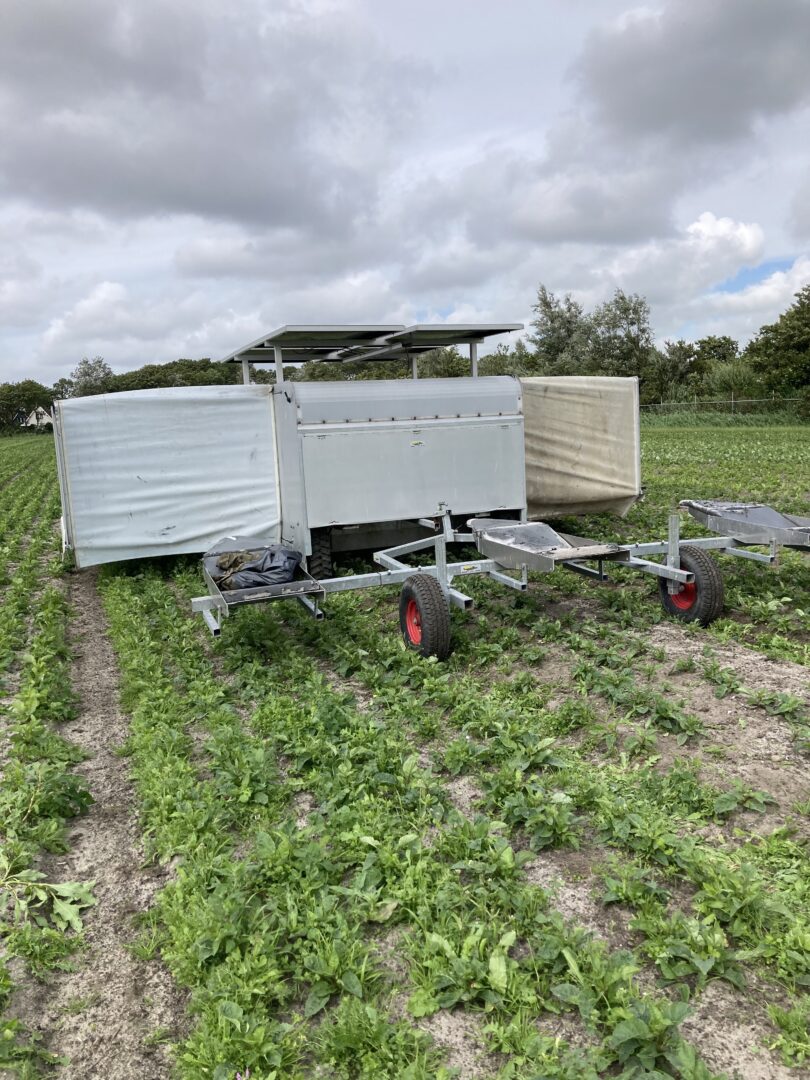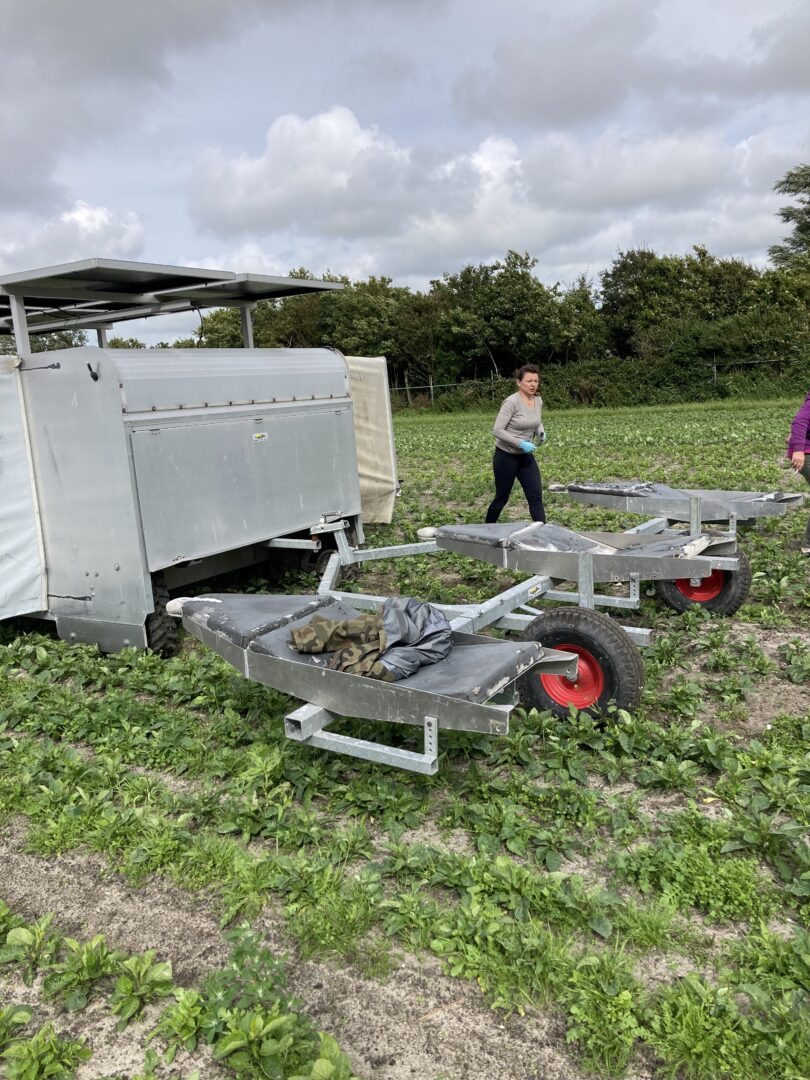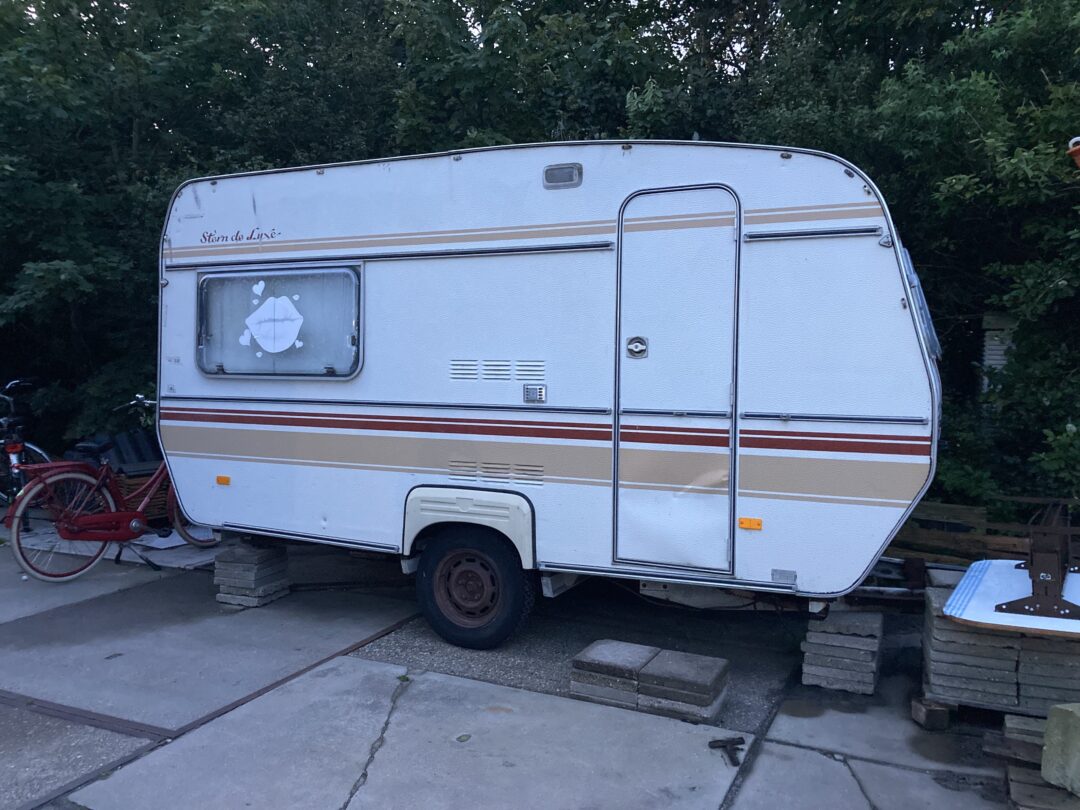My first day’s work is to weed around the dahlia’s bulbs. I start working at 7.30am with a group of women from Poland who have come to work. The coffee machine in the kitchen is out of order, so around 6am I head to the office kitchen for a coffee, where John, the owner of this organic flower farm, is already sitting at his computer screen.
Rows and rows of dahlia bulbs are planted in the field. It is completely different from the image of an ‘organic flower farmer’ or ‘multi-product’ in Japan: ‘organic’ but ‘high-tech’, multi -product but ‘mass-produced’. This flower farmer grows bulbs for many flowers, not just tulips. Together with colleagues, we pull weeds using a ‘weed-pulling car’. In that car, five people inside and three outside, lying on beds arranged so that they lie face down, pull weeds around the dahlia bulbs.
‘Meditative work, isn’t it?’ My friend told me when I told him that I would work at an organic flower farm. ‘Is it really? I thought. The weed-pulling car moves automatically, but if you are even slightly worried about which weeds are which, you can’t pull the weeds out at the right speed. In the beginning, Brygida and Kasha, who were sitting beside me, showed me how to do it by hand imitation, and within an hour I was used to the work itself.
I have never seen so many ladybirds in one day, and I am grateful to think that these weeds are also free from pesticides and chemicals. The work, concentrating only on pulling weeds, dahlia leaves, soil and ladybirds, was rather meditative, as my friend said. Although my thoughts of telling my friend that it was better than meditating in Thailand or Bali, and that I would recommend it, were shattered in the afternoon…


Same same but different. Another artist-in-residence has begun. No, not just artist-in-residence, but also work: one thing can mean more than one thing. Just as an expat is also an immigrant. But not all migrants are expats.
Starting today, I will be working for three weeks at the Huiberts biologische bloembollen, an organic bulb farmer in the Netherlands. Here, eight Polish women move from Poland to the Netherlands to live and work for eight weeks in the summer. I would have liked to work with them for eight weeks, but because I had an artist-in-residence in Switzerland and also need time to prepare for the ‘Tulip Mania 2’ residency/exhibition at zone2source starting in September, I only work for four weeks.
As the live-in rooms were full, they even provided me with a camper. I am so grateful. The percentage of organic bulbs is said to be 0.22 per cent of the bulb market, but I wonder if 0.22 percent of people have such kindness. I have a feeling that 0.22 per cent would be too low.
What is my question for this artist-in-residence “cum” seasonal labor? I suppose it is: what do I feel when I actually experience the work? In my research so far, I have talked to industrial relations experts about the precarious working conditions of seasonal workers. In Poland, I also heard about the experiences of people who worked in the Netherlands. It is easy to imagine the labour force of seasonal workers being exploited within the economic structure. However, the quality of working conditions varies. In this organic bulb farm, they are given free accommodation and travel, and their wages are above the minimum wage. However, it is a hard job.
I will soon start work at 7.30 in the morning. I am a little worried about whether my body will be able to cope. But if I can’t do this for such a short period, I’m sure I won’t be able to survive. I can’t even evacuate when a disaster happens. People who are forced to move for unavoidable reasons, such as conflict, persecution or disaster – they are also migrants. I live my life thinking, “I will not be like that”. Although the possibility is not zero.
I’m off to work!
